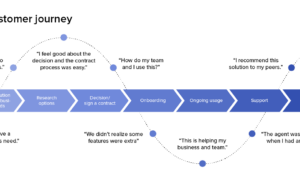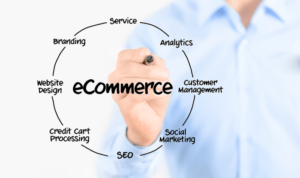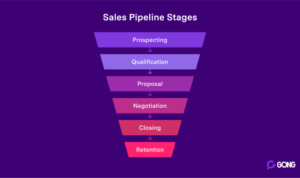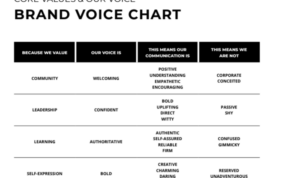Personalizing Customer Experiences takes center stage in the business world, where creating tailored interactions is key to success. Get ready to dive into the strategies and impact of customized customer experiences with a fresh perspective.
In this dynamic landscape, businesses are constantly seeking innovative ways to engage customers on a personal level, leading to enhanced loyalty and satisfaction.
Importance of Personalizing Customer Experiences
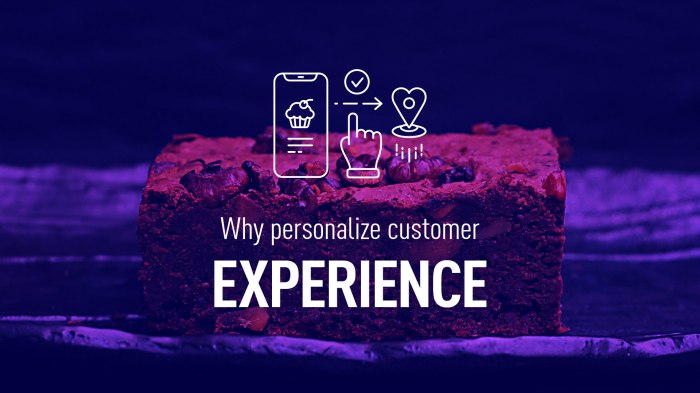
Personalizing customer experiences is crucial for businesses as it helps create a strong emotional connection with customers, leading to increased loyalty, satisfaction, and repeat business.
Examples of Companies Excelling in Personalized Customer Experiences
- Amazon: Amazon utilizes personalized recommendations based on customer browsing and purchase history, making the shopping experience more tailored to individual preferences.
- Netflix: Netflix suggests movies and TV shows based on viewing habits, ensuring that users are presented with content they are likely to enjoy.
- Spotify: Spotify curates personalized playlists for users based on their listening history, enhancing user engagement and satisfaction.
Impact of Personalized Experiences on Customer Loyalty and Satisfaction
Personalized experiences have a significant impact on customer loyalty and satisfaction by making customers feel valued and understood. When businesses cater to individual preferences and needs, customers are more likely to return, recommend the brand to others, and become loyal advocates.
Strategies for Personalizing Customer Experiences
Personalizing customer experiences is crucial in today’s competitive market. By implementing effective strategies, businesses can create meaningful connections with their customers, leading to increased loyalty and satisfaction.
Leveraging Customer Data
One of the key strategies for personalizing customer experiences is leveraging customer data. By collecting and analyzing data such as purchase history, browsing behavior, and demographic information, businesses can gain valuable insights into customer preferences and behaviors. This data can then be used to tailor product recommendations, marketing messages, and offers to individual customers, creating a more personalized experience.
Implementing Automated Personalization
Automated personalization involves using algorithms and machine learning to deliver personalized content and recommendations to customers based on their past interactions with the brand. While automated personalization can be efficient and scalable, it may lack the human touch and emotional intelligence that comes with human-driven personalization.
Human-Driven Personalization
On the other hand, human-driven personalization relies on human insight and creativity to tailor customer experiences. This approach often involves personal interactions with customers, such as personalized emails, phone calls, or face-to-face meetings. While human-driven personalization can be more time-consuming, it can create deeper connections with customers and build long-lasting relationships.
Role of Data Analytics
Data analytics plays a crucial role in tailoring customer experiences by helping businesses make sense of large amounts of customer data. By using advanced analytics tools, businesses can identify patterns, trends, and customer preferences, enabling them to personalize interactions at scale. Data analytics also allows businesses to measure the effectiveness of their personalization strategies and make data-driven decisions to optimize customer experiences.
Implementing Personalization in Marketing

Personalization in marketing involves tailoring products, services, and messages to meet the specific needs and preferences of individual customers. This approach helps businesses create more meaningful connections with their target audience, ultimately leading to increased customer loyalty and satisfaction.
Integration of Personalization in Marketing Campaigns
Implementing personalization in marketing campaigns requires leveraging customer data to create targeted and relevant content. This can be achieved through various tactics such as:
- Segmentation: Dividing customers into groups based on demographics, behavior, or preferences to deliver personalized messages.
- Customized Emails: Sending tailored email campaigns with personalized subject lines, product recommendations, and special offers.
- Dynamic Website Content: Displaying different content based on user behavior, location, or past interactions to enhance the browsing experience.
- Personalized Ads: Using data to deliver targeted ads to specific audiences across various digital channels.
Examples of Personalized Marketing Tactics
Some examples of personalized marketing tactics across various channels include:
- Amazon’s product recommendations based on previous purchases and browsing history.
- Netflix’s personalized content recommendations based on viewing history and preferences.
- Sephora’s personalized beauty tips and product recommendations based on customer profiles and purchase history.
- Spotify’s personalized playlists and music recommendations based on listening habits and preferences.
Challenges in Implementing Personalized Marketing Strategies, Personalizing Customer Experiences
Businesses may face several challenges when implementing personalized marketing strategies, such as:
- Data Privacy Concerns: Ensuring compliance with data protection regulations and gaining customer trust with sensitive information.
- Data Accuracy: Maintaining accurate and up-to-date customer data to deliver relevant and personalized experiences.
- Resource Constraints: Investing in the technology and resources needed to collect, analyze, and leverage customer data effectively.
- Creative Content Development: Balancing personalization with creativity to avoid appearing too intrusive or repetitive in marketing messages.
Technology and Tools for Personalizing Customer Experiences
In the digital age, businesses utilize various technologies and tools to personalize customer experiences, creating unique interactions that cater to individual needs and preferences.
Key Technologies and Tools
- Customer Relationship Management (CRM) systems: These platforms help businesses manage customer data, track interactions, and provide insights for personalized marketing strategies.
- Marketing automation tools: Automation software enables businesses to send targeted messages, personalized offers, and recommendations based on customer behavior.
- Personalization engines: AI-powered tools analyze customer data to deliver tailored content, product recommendations, and marketing messages in real-time.
AI and Machine Learning in Personalization
AI and machine learning play a crucial role in enhancing personalization efforts by analyzing vast amounts of customer data to predict preferences, behavior patterns, and trends. These technologies enable businesses to create highly personalized experiences, such as dynamic website content, personalized emails, and customized product recommendations.
Data Privacy and Security
Data privacy and security are paramount in personalized customer experiences to build trust with customers and comply with regulations like GDPR. Businesses must prioritize secure data handling practices, transparent privacy policies, and obtain customer consent for data usage. Protecting customer data ensures a positive customer experience and maintains brand reputation.
